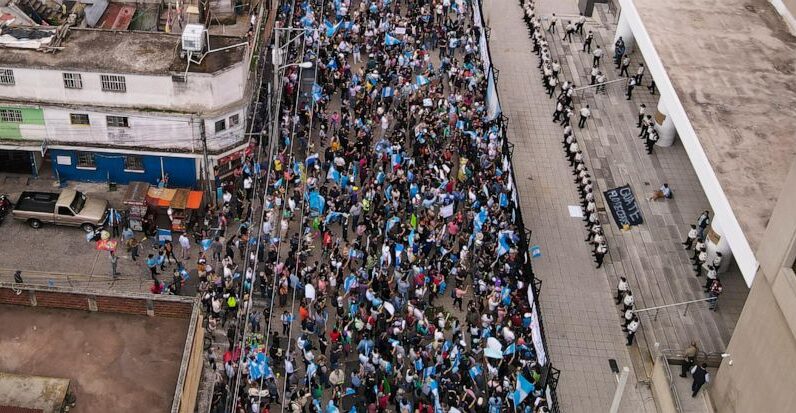
MEXICO CITY — Central America is experiencing a wave of unrest that is remarkable even for a region whose history is full of turmoil. The most recent example is the political upheaval in Guatemala as the country heads into a runoff presidential election in August.
A look at several events affecting Central American countries:
Guatemala
Guatemala is locked in the most complicated presidential election in the country’s recent history. The first round of the June election ended in a surprising twist when the little-known progressive candidate Bernardo Arévalo of the Moviment Llavor party surged ahead as the favorite.
Now headed for an August election runoff with conservative candidate and top vote-getter Sandra Torres, Arévalo has so far managed to survive judicial attacks and attempts by Guatemala’s political establishment to discredit his party. It comes after other moves by the country’s government to manage the election, including the banning of several candidates before the first round of voting.
While not entirely unprecedented in a country known for high levels of corruption, US officials say the latest escalation is a threat to the country’s democracy.
El Salvador
El Salvador has been radically transformed in recent years with the entry of millennial populist president Nayib Bukele. A year ago, Bukele entered into an all-out war with the Barri 18 and Mara Salvatruchas, or MS-13, gangs. He suspended constitutional rights and threw 1 in 100 people in the country into prisons that have fueled allegations of massive human rights violations.
The sharp drop in violence that followed Bukele’s actions, combined with an elaborate propaganda machine, has ignited a populist pro-Bukele fervor across the region, with other governments trying to emulate the Bitcoin-pushing leader.
At the same time, Bukele has announced that he will stand for re-election in February next year despite the constitution prohibiting it. He has also made moves that observers warn are gradually dismantling the nation’s democracy.
Nicaragua
President Daniel Ortega is in total repression against dissent. For years, regional watchdogs and the US government raised the alarm that democracy was eroding under the leader of the Sandinista National Liberation Front. This came to a head in 2018 when Ortega’s government began a violent crackdown on protests.
More recently, Ortega forced hundreds of opposition figures into exile, stripping them of their citizenship, seizing their property and declaring them “traitors to the motherland.” Nicaragua has expelled aid groups such as the Red Cross and a years-long crackdown on the Catholic Church has forced the Vatican to close its embassy. The strengthening of suffocation in the country has caused many Nicaraguans to flee their country and seek asylum in neighboring Costa Rica or the United States.
Honduras
President Xiomara Castro took office last year as Honduras’ first female president, winning on a message of tackling corruption, inequality and poverty. Wife of former president Manuel Zelaya, who was ousted in a military coup, won a landslide victory.
But his popularity has waned, as many of his promises of change have not been fulfilled. At the same time, the government has sought to emulate neighboring El Salvador’s crackdown on gangs, responding fiercely to a gruesome massacre at a women’s prison in June.
Costa Rica
Once known as the land of “pure life” and soft politics compared to the surrounding region, Costa Rica has seen increasing bloodshed that threatens to tarnish the country’s reputation as a safe haven. Homicides have increased as the nation has become a base for drug traffickers. President Rodrigo Chavez, who took office last year, has promised more police on the streets and tougher laws to tackle rising crime.
At the same time, a migratory flight from Nicaragua has overflowed the country, known as one of the world’s great refuges for people fleeing persecution. Since then, the government has tightened its asylum laws.
panama
Panama heads to presidential elections in May, with growing frustration over economic problems, corruption and insecurity acting as potential harbingers of change. Any changes could have global significance because of Panama’s status as a financial center.
The nation has also become the epicenter of a steady flow of migration through the dangerous jungles of the Darien Gap that straddles the border between Colombia and Panama.
Belize
Belize is often seen as a place of relative calm in a region where it is not. Formerly a British colony called British Honduras, Belize’s system of government is still closely tied to the country. But Prime Minister Johnny Briceño has tried to distance his nation from the monarchy. The nation is also one of the few in the Americas to maintain formal ties with Taiwan amid a broad Chinese effort to siphon support from the island nation by funneling money to Central America.
[ad_2]
Source link





